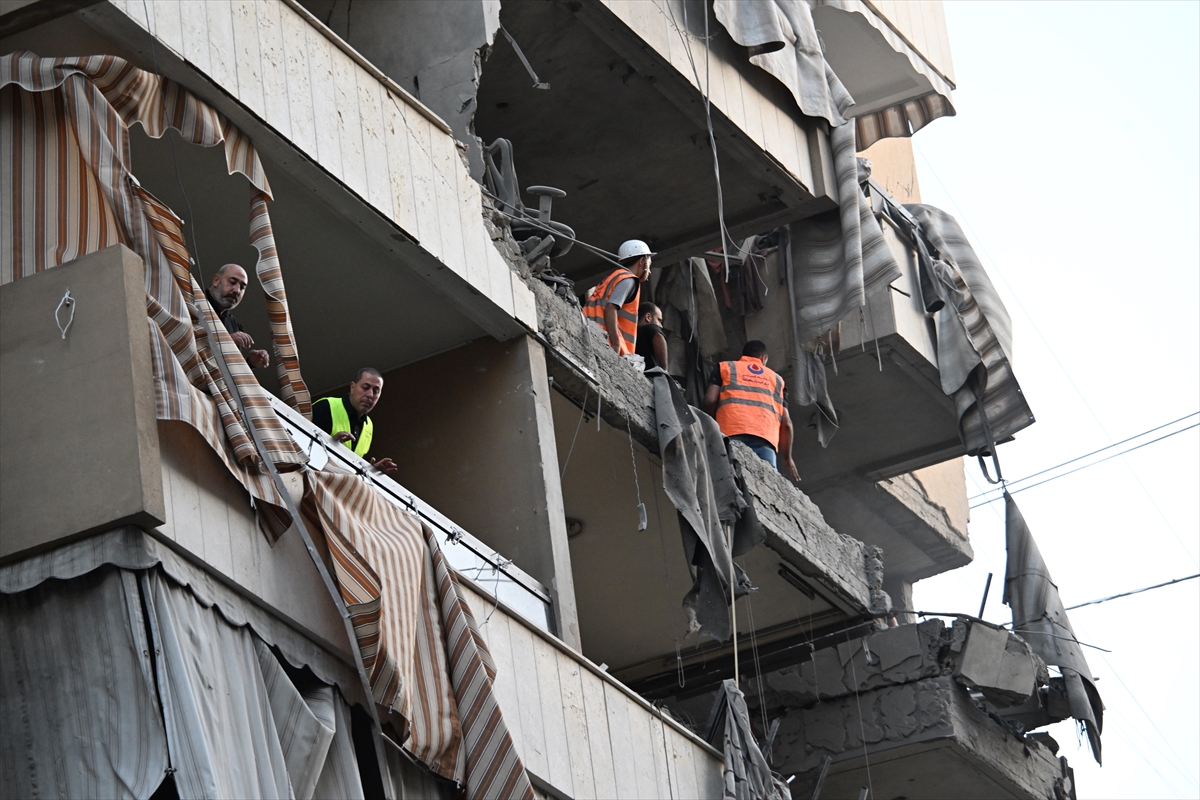
By International Affairs Correspondent
The Israeli army on Sunday struck at Hezbollah’s chief of staff, Ali Tabatabai, killing five people, injuring 28, in the Lebanese capital Beirut, in an attack that defies a ceasefire agreement in place since November 2024.
Prime Minister, Benjamin Netanyahu’s office said the strike targeted Tabatabai in the heart of Beirut, accusing him of leading “the buildup and armament” of Hezbollah. Netanyahu confirmed that he ordered the operation on the recommendation of Defence Minister, Israel Katz, and Chief of Staff, Eyal Zamir.
The Lebanese Health Ministry reported that five people were killed, and 28 others injured in the attack. Israel’s state-run broadcaster KAN said the country had informed the United States of the strike beforehand. However, a US official told Israel’s Channel 12 that Washington was only briefed after the operation. The official, speaking anonymously, said that while the US had been aware Israel was “on the verge of escalating its attacks in Lebanon,” it did not know the timing or specific target of the strike.
According to Channel 12, Israel had previously attempted to assassinate Tabatabai twice during the war in Lebanon. Hezbollah has not yet commented on Sunday’s attack.
Lebanon’s official National News Agency (NNA) reported that the air strike hit an apartment building in Beirut’s southern suburb of Haret Hreik. Injuries were reported, and vehicles and surrounding buildings sustained significant damage. Two missiles struck a building on al-Arid Street. Ambulances were immediately dispatched to transport the injured to nearby hospitals. A large plume of smoke was visible over the neighbourhood, and social media footage showed dozens of people gathered near the site.
Al Jazeera’s Zeina Khodr, reporting from Beirut, suggested that the fact the capital was targeted without prior warning indicated Israel was pursuing “a high value target”. She noted that Israel has previously issued forced evacuation orders ahead of its strikes on Beirut.
The strike comes just days before Pope Leo XIV is scheduled to visit Lebanon, amid intensified Israeli operations in recent weeks.
Hezbollah MP Ali Ammar condemned the attack, stating: “Every attack on Lebanon is a crossing of a red line, and this aggression is inherent in the entity that targets Lebanon’s dignity, sovereignty, and the security of its citizens.”
Earlier this week, at least 13 people were killed in an Israeli air strike on a Palestinian refugee camp in southern Lebanon, according to the Lebanese Ministry of Public Health.
A drone reportedly struck a car on Tuesday in the car park of a mosque in the Ein el-Hilweh refugee camp, on the outskirts of the coastal city of Sidon, the state-run NNA reported.
Israel and the United States have been pressing Lebanon to disarm Hezbollah. The Lebanese military issued a plan, approved by the government in September, to disarm Hezbollah nationwide by the end of the year. Hezbollah has refused, insisting it will not disarm while Israel continues to conduct strikes across the country and occupies parts of southern Lebanon.
Since the beginning of Israeli operations in October 2023, which escalated into a full scale offensive in September 2024, the Israeli army has killed over 4,000 people and injured nearly 17,000 in Lebanon. Israel committed 4500 violations of the ceasefire since last October 2024.
The ceasefire agreement signed between Israel and Lebanon on 26 November, which came into force on 27 November, provides for a ceasefire monitoring mechanism by the United States and France.
[Photo: Security forces, civil defense, and firefighting teams arrive at the scene following an Israeli attack which killed five people and injured 28 violating the ceasefire in Dahieh region of Beirut, Lebanon on November 23, 2025. Photojournalist: Houssam Shbaro]